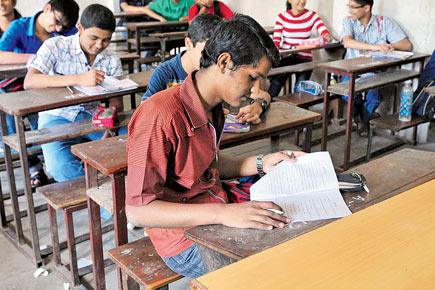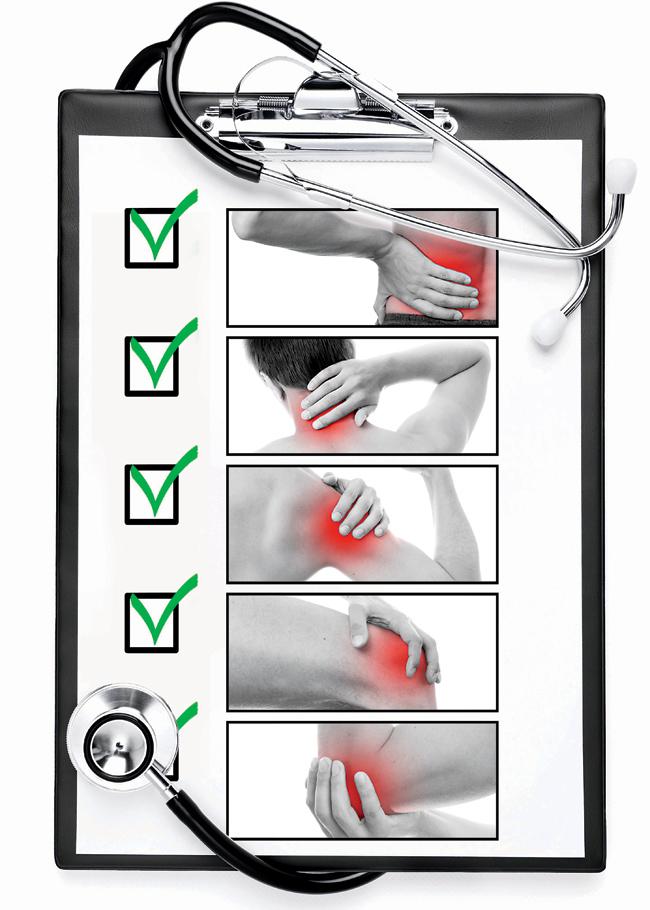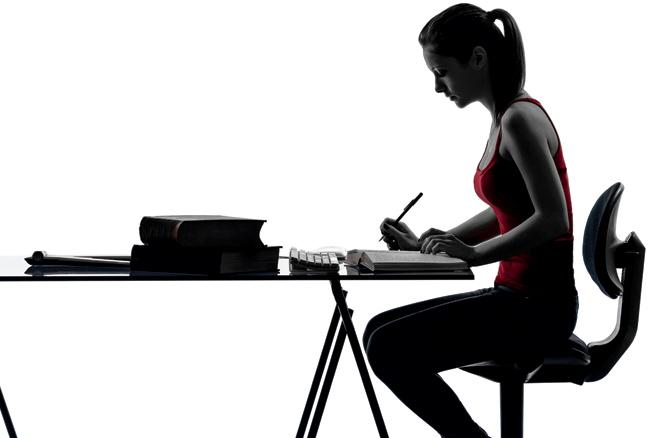Feel the need to increase your writing speed or does your feet hurt from all the walking around while studying? With the SSC examinations beginning today, the guide seeks expert opinion to help you beat the stress and max your performance, each time

Stress check
Wrist twist
Writing continuously for a three-hour long exam often puts pressure on a student's wrists and fingers, and as a result, one may feel tiredness or pain in that area. Moreover, with these examinations for almost a month, it is important to ensure that your wrists and fingers are in the best shape during this time.
Tips
>> Take a five-second break from writing at regular intervals during the exam. Hyper-extend or stretch your fingers.
>> Close your fingers into a fist and twirl the wrist in order to recharge your fingers for increasing the pace of writing.
ADVERTISEMENT

Tough to stomach
Anxiety pangs are a common problem during this time. It can cause discomfort in the digestive tract, particularly acidity.
Tips
>> Avoid spicy food, eat less than your full capacity.
>> Keep yourself hydrated, even in the examination hall.
Eye care
Reading continuously puts a strain on the tiny extraocular muscles of the eyes since they get contracted during the process. Moreover, reading from a gadget screen often leads to dryness in the eyes.
Tips
>> Avoid the sleeping posture while reading.
>> If you have eye power, wear spectacles at all times while studying.
>> Take regular breaks if you are reading from the computer. The thumb rule is 20-second break after every 20 minutes spent reading on screen.
Blink at regular intervals and splash clean water in your eyes to avoid dryness.
>> Before tucking in, place a slice of cucumber or a used-and-dried green tea bag on the eyes to refresh them.

Brain matters
While awake, the brain is busy gathering inputs from different sensory modalities. When a person sits to study for exams, the brain is compelled to focus only on limited (often repetitive aspects) and suppress the non-academic aspects, putting itself under pressure. This can lead to distraction and make it more stressful for the students, manifesting as tiredness, irritability and sleepiness at the time to study.
Tips
>> Take a 10 to 15-minute nap after a long period of continuous reading.
>> Try music therapy by listening to soft and slow music, preferably symphonies.
>> Get at least seven hours of sleep because during that time the body executes repair mechanism; new cells and neurons are formed that are important to help one feel fresh and think more clearly.
Back track
Sitting continuously for long hours, and often in positions which are not right, does tend to put a lot of stress on the back. Poor posture and lack of change of posture causes stiffness in the back muscles. Sometimes, stress on the brain can also cause the muscles of your torso and back to tense up.
Tips
>> In order to relax the upper back and neck, inhale deeply and shrug your shoulders. Lift them high up to your ears, hold and then release. Repeat this thrice after every two hours.
>> Relax your body by practising the yoga pose, Shavasana, for 10 minutes, when you feel tired. Lie on your back with arms and legs spread at 45 degrees, close your eyes and concentrate on your breathing.
Footloose
During the revision period and exams, students often complain of frequent leg cramps. Some students have a habit of walking around while studying that can get tiring. On the other hand, sitting in the same position for long hours tends to restrict blood circulation in the feet, as a result, your legs may feel heavy and painful.
Tips
>> Take quick, brisk strolls for five to 10 minutes after every couple of hours.
>> During the exam, stretch your legs at regular intervals. Flex your toes by pointing them towards the ground for five seconds or move your feet in a circular motion from the ball of the ankle.
Inputs by Dr Shirish Hastak (Neurologist and Stroke Specialist, Wockhardt Hospitals), Dr Hitesh Kubadia (Joint Replacement Surgeon, HKS Clinic), Dr Hozefa Bhinderwala (Consultant Psychiatrist, Global Hospitals) and Dr Nisheeta Agarwala (Consultant Ophthalmologist at PD Hinduja Hospital)
 Subscribe today by clicking the link and stay updated with the latest news!" Click here!
Subscribe today by clicking the link and stay updated with the latest news!" Click here!






